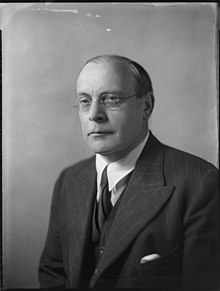The Lord Salter | |
|---|---|
 | |
| Minister of Materials | |
| In office 24 November 1952 – 1 September 1953 | |
| Prime Minister | Winston Churchill |
| Preceded by | The Viscount Swinton |
| Succeeded by | The Lord Woolton |
| Minister for Economic Affairs | |
| In office 26 October 1951 – 24 November 1952 | |
| Prime Minister | Winston Churchill |
| Preceded by | Hugh Gaitskell |
| Succeeded by | George Brown (Sec. of State) |
| Chancellor of the Duchy of Lancaster | |
| In office 25 May 1945 – 26 July 1945 | |
| Prime Minister | Winston Churchill |
| Preceded by | Ernest Brown |
| Succeeded by | John Hynd |
| Parliamentary Secretary to the Ministry of War Transport | |
| In office 29 June 1941 – 23 May 1945 | |
| Prime Minister | Winston Churchill |
| Preceded by | John Llewellin |
| Succeeded by | Peter Thorneycroft |
| Parliamentary Secretary to the Ministry of Shipping | |
| In office 13 November 1939 – 29 June 1941 | |
| Prime Minister | Neville Chamberlain Winston Churchill |
| Preceded by | Leslie Wilson (1919) |
| Succeeded by | Office abolished |
| Member of the House of Lords Lord Temporal | |
| In office 12 November 1953 – 27 June 1975 Hereditary peerage | |
| Member of Parliament for Ormskirk | |
| In office 5 April 1951 – 12 November 1953 | |
| Preceded by | Ronald Cross |
| Succeeded by | Douglas Glover |
| Member of Parliament for Oxford University | |
| In office 27 February 1937 – 23 February 1950 | |
| Preceded by | Hugh Cecil |
| Succeeded by | Constituency abolished |
| Personal details | |
| Born | James Arthur Salter 15 March 1881 |
| Died | 27 June 1975 (aged 94) |
| Alma mater | Brasenose College, Oxford |
James Arthur Salter, 1st Baron Salter, GBE, KCB, PC (15 March 1881 – 27 June 1975) was a British civil servant, politician, and academic who was a significant politician behind the concept of European political union, often in conjunction with his close friend and colleague Jean Monnet.
© MMXXIII Rich X Search. We shall prevail. All rights reserved. Rich X Search
